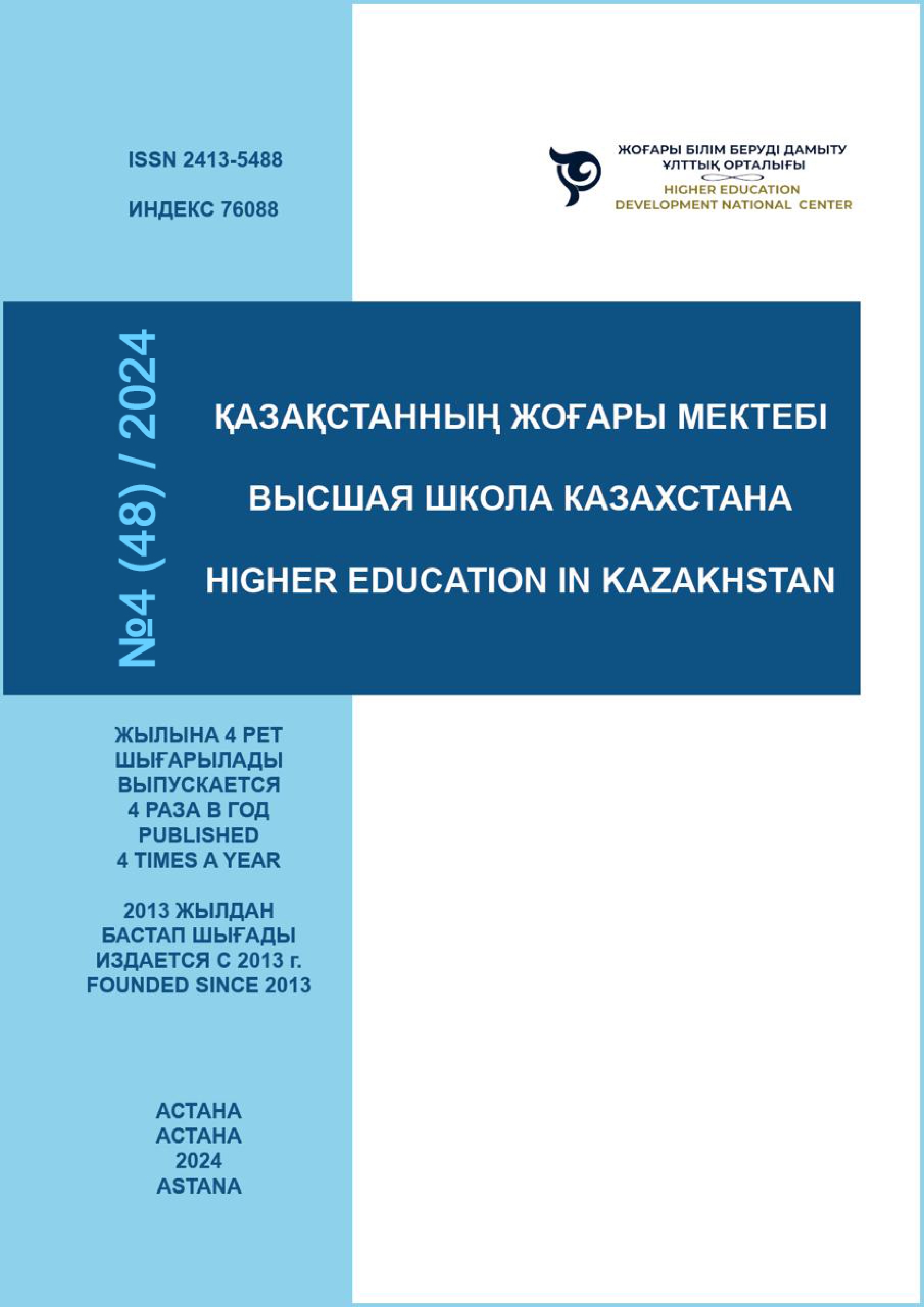EXPLORING KAZAKH EFL TEACHERS’ PROFESSIONAL IDENTITY: A QUANTITATIVE STUDY
DOI:
https://doi.org/10.59787/2413-5488-2024-48-4-52-66Keywords:
Professional Identity, EFL Teachers, Quantitative Research, Teacher Development, Survey StudyAbstract
This study's extensive quantitative research design to investigate the professional identities of in-service EFL teachers in Kazakhstan and Turkistan makes it stand out. A comprehensive survey, unparalleled in scope and exhaustiveness, was distributed to 470 English instructors in 45 state schools, offering an extensive synopsis of how these educators see their professional identities. The survey findings provide insights into several professional identity factors, including the propensity to teach, act as role models, and establish productive learning settings. The results show that participants' professional identities were generally average, with major exceptions for knowledge-sharing and role modeling. Simultaneously, less emphasis was placed on recognizing students' original language culture and establishing a favorable classroom atmosphere. The study also looks at how different professional identities are within qualification categories, and it finds statistically significant variances that highlight how teachers' self-perception and professional growth are influenced by their educational background. These findings have implications for teacher education and professional development initiatives and a deeper knowledge of the elements influencing EFL instructors' professional identities in Kazakhstan.
References
Abushabab, W. (2016). Strategic Management Practices. An Investigation of Public Sector Organizations in the Kingdom of Bahrain (Doctoral dissertation, University of Bradford).
Beijaard, D., Meijer, P. C., & Verloop, N. (2004). Reconsidering research on teachers’ professional identity. Teaching and teacher education, 20(2), 107-128. https://doi.org/10.1016/j.tate.2003.07.001
Day, C., & Gu, Q. (2010). The new lives of teachers. Routledge.
Day, C. (2011). Uncertain professional identities: Managing the emotional contexts of teaching. New understandings of teacher's work: Emotions and educational change, 45-64. https://doi.org/10.1007/978-94-007-0545-6_4
Duff, P. A., & Uchida, Y. (1997). The negotiation of teachers' sociocultural identities and practices in postsecondary EFL classrooms. Tesol Quarterly, 31(3), 451-486. https://doi.org/10.2307/3587834
Farrell, T. S. (2011). Exploring the professional role identities of experienced ESL teachers through reflective practice. System, 39(1), 54-62. https://doi.org/10.1016/j.system.2011.01.012
Hashemi, M. R., Karimi, M. N., & Mofidi, M. (2021). Developing and validating an EFL teacher professional identity inventory: a mixed methods study. MEXTESOL Journal, 45(1), n1.
Kelchtermans, G. (2009). Career stories as gateway to understanding teacher development. In Teachers' career trajectories and work lives (pp. 29-47). Dordrecht: Springer Netherlands.
Khegay, Y. (2017). Exploration of Teacher Identity in the Context of Current School Reforms in Kazakhstan: perceptions of NIS teachers (Doctoral dissertation, Nazarbayev University).
Noor, S., Tajik, O., & Golzar, J. (2022). Simple random sampling. International Journal of Education & Language Studies, 1(2), 78-82. https://doi.org/10.22034/ijels.2022.162982
Pallant, J. (2020). SPSS survival manual: A step by step guide to data analysis using IBM SPSS. Routledge.
Pennington, M. C. (2014). Teacher identity in TESOL: A frames perspective. In Advances and current trends in language teacher identity research (pp. 16-30). Routledge.
Pennington, M. C., & Richards, J. C. (2016). Teacher identity in language teaching: Integrating personal, contextual, and professional factors. RELC journal, 47(1), 5-23. https://doi.org/10.1177/0033688216631219
Polovnikova, X. V., & Qanay, G. A. (2023). Pre-service teachers’professional identity in kazakhstan. Bulletin of the Kazakh National Women's Pedagogical University, (1), 9-21. https://doi.org/10.52512/2306-5079-2023-93-1-9-21
Sarstedt, M., Ringle, C. M., & Hair, J. F. (2021). Partial least squares structural equation modeling. In Handbook of market research (pp. 587-632). Cham: Springer International Publishing.






